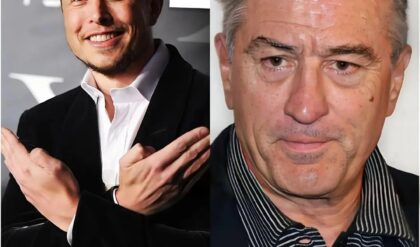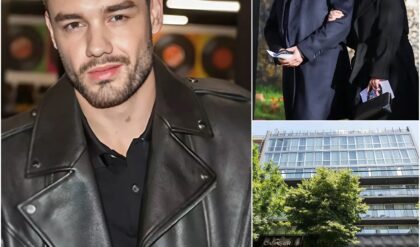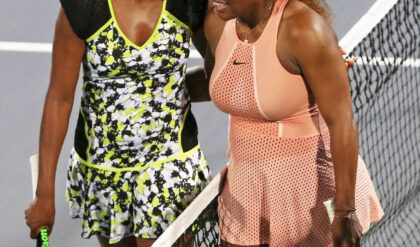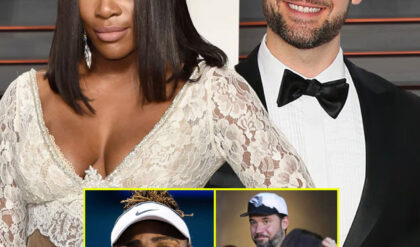At a time when West as an artist has become more divisive than ever, longtime fans are choosing
whether to embrace his flaws or finally let him go.
My earliest memory of Kanye West predates the Kardashians, the sneaker deals, and the
presidential run. I remember sitting in the passenger seat of my brother’s hand-me-down Corolla
more than a decade ago, as he blasted West’s music through the stereo.
“Kanye West is a genius,” he told me matter-of-factly. So I took his word for it.
I spent my formative years in Chicago, where one couldn’t escape West’s impact. Whether it was a
local DJ on 107.5 WGCI spinning “All Falls Down” on the hour every hour or hearing “Flashing
Lights” pulsating out of a car driving down the block, West’s music became a soundtrack for many
indelible moments in my life.

STEPHANE CARDINALE – CORBIS//GETTY IMAGES
Whether it was West’s slut shaming of his ex-girlfriend Amber Rose, his apparent endorsement of Tyga pursuing a romantic relationship with a teenage Kylie Jenner, or his vocal support of President Donald Trump following the 2016 presidential election, there has been a slew of eyebrow-raising moments that have forced Black fans of the rapper to draw a line between what is and isn’t acceptable behavior. Officially declaring the mogul to be problematic wasn’t an easy pill to swallow for some. But for others, West’s antics gave them all the evidence they needed to mindfully erase the rapper’s music and presence from their lives.
For critic Taylor Crumpton, it was all the above that led her to nix further support of West. Though there is one line-crossing deed in particular that she attributes to her decision: his relationship with Kim Kardashian.
“Multiple Black women have said, ‘You have made your empire, your money off of our imagery and our likeness, and have gone to the point where now everyone in your family has,” Crumpton says, in reference to the Kardashian–Jenner family. “What does it mean when one of our cultural icons feeds into that and is now being used as a selling point?”
And Crumpton’s not alone. West’s affiliation and integration into the Kardashian–Jenner clan has marked the point of no return for many Black women. “Black women have been sort of dubious of the Kardashians and their entire celebrity project longer than most folks,” Soraya McDonald, a culture critic for The Undefeated, says. “Usually, if you go back and you look at who has consistently called out the Kardashians for repeatedly appropriating the work and the creativity of Black women, it’s been Black women.”
McDonald points out that West’s public adoration of his wife, divorce rumors aside, and everything her family represents shouldn’t come as a surprise though. Even before marrying Kardashian in 2014, the rapper voiced his preference for non-Black women and his reverence for flawed cultural icons, such as Walt Disney and Steve Jobs, through his lyrics, music videos, and countless interviews. We all knew where he stood.
Affirming that West has been “telling us who he is” for a long time, McDonald explains, “‘Gold Digger’ came out in 2005. And even then, he says, ‘I know there’s dudes balling, and yeah, that’s nice. And they going to keep calling and trying, but you stay right, girl. And when you get on, he’ll leave your ass for a white girl.’ He’s clearly talking about himself. Because that’s what he ends up doing.”
Though McDonald doesn’t discredit West’s musical legacy, she does raise a brow at impassioned fans who tend to overlook deeply problematic moments—like his failed fashion statement with the confederate flag or his unabashed admiration of Trump, who has repeatedly stoked racial fears and leaned into racist rhetoric.
“I think it’s become increasingly more difficult to justify one’s unreserved Kanye fandom. At the very least, it has to come with significant asterisks where folks kind of need to explain themselves, especially when you start to get into the more recent years,” says McDonald. “As flawed as he is, I think there’s a part of us that has some compassion [to understand that his life] is not a great situation for anybody. And we’re all just watching it, because he’s so famous and it’s so highly visible—but there’s not much anyone can do.”
While some hypebeasts will continue to spend on the latest Yeezy Boost iteration or buy stock in Gap following the news of his 10-year business deal with the brand, many others—like Crumpton—are left reckoning with their relationship to West. Crumpton believes that West, too, notices the tensions that have arisen among his Black fans, leading him to evidently return to his “roots” in recent years.”[Look at] how Kanye attempted to bring Blackness to Coachella, like Beyoncé [already did] the year prior,” Crumpton says, “having a gospel choir and playing all of these songs that were very specific to a generation of Black kids who grew up in the church in the ’90s, 2000s.”
Of course, that was during a time when one could argue West was one of the most creatively adventurous artists to date—one who understood and articulated the Black experience in America better than any other rapper. That was the old Kanye.
Now, in 2020, there’s no single, all-encompassing way to describe the man. No longer just a performer, the polymath is a fashion designer, an amateur architect, an art aficionado, and even an aspiring politician. But how one really views West depends entirely on who they are. To some, he’s a fashion rebel who staked his claim within the overtly white fashion world. To others, he’s a legend who spearheaded a revolutionary era of hip-hop in Chicago. And yet to even more, he’s just Kim Kardashian’s husband who interrupted Taylor Swift at the 2009 MTV Video Music Awards.
I’ve always had conflicting feelings toward West. It has become increasingly difficult to justify his moments of musical genius and mastery of hip-hop prose (à la My Beautiful Dark Twisted Fantasy) when a poorly articulated political prophecy or a flight of vocal misogynoir quickly follows. This confliction is why rather than succumbing to the labyrinth of my own thoughts, I reached out to three prominent Black cultural critics to dissect how they, and the Black community at large, are reckoning with Kanye West.

IAN WEST – PA IMAGES//GETTY IMAGES
It rings hollow. “How can you fully come back when you are married and part of a family that has taken our culture for profit and has not accepted any of our critiques?” asks Crumpton. “How can you truly come back when you won’t let us hold you accountable for the days in which you were holding hands [with Donald Trump] and wearing MAGA merch? There’s these ways in which in public, he’s trying to give, but the Black community has an awareness that when you’re at home, we know who still surrounds you, and we know it’s not us.”
Of course, West’s (mis)behavior and how he is received is even more complicated by his mental health. In 2018, West acknowledged that he was diagnosed with bipolar disorder, and he often speaks out about the periods when he is and isn’t taking medication. Incidents that were once viewed as ill-conceived publicity stunts could be and probably should be reexamined through an empathetic lens, taking West’s mental state into consideration.
There’s nothing easy about watching our icons slip away from the greatest versions of themselves—the versions we want to immortalize them by. When it comes to West, many of his current and former fans simply want to see the artist they once viewed as a hero and a musical genius get the help he needs.
“I think his legacy will be that of a tortured, confusing, confounding, frustrating, brilliant artist—unless he does something really truly terrible. Which I really hope he doesn’t,” says Julious. “I think that people will see him for who he is, both as a brilliant artist and as a brilliantly frustrating human being. And as long as that is how people look at or react to things critically, I think that his legacy will be that of a very complex and confounding artist who contributed a lot, both good and bad, to the general public.”





